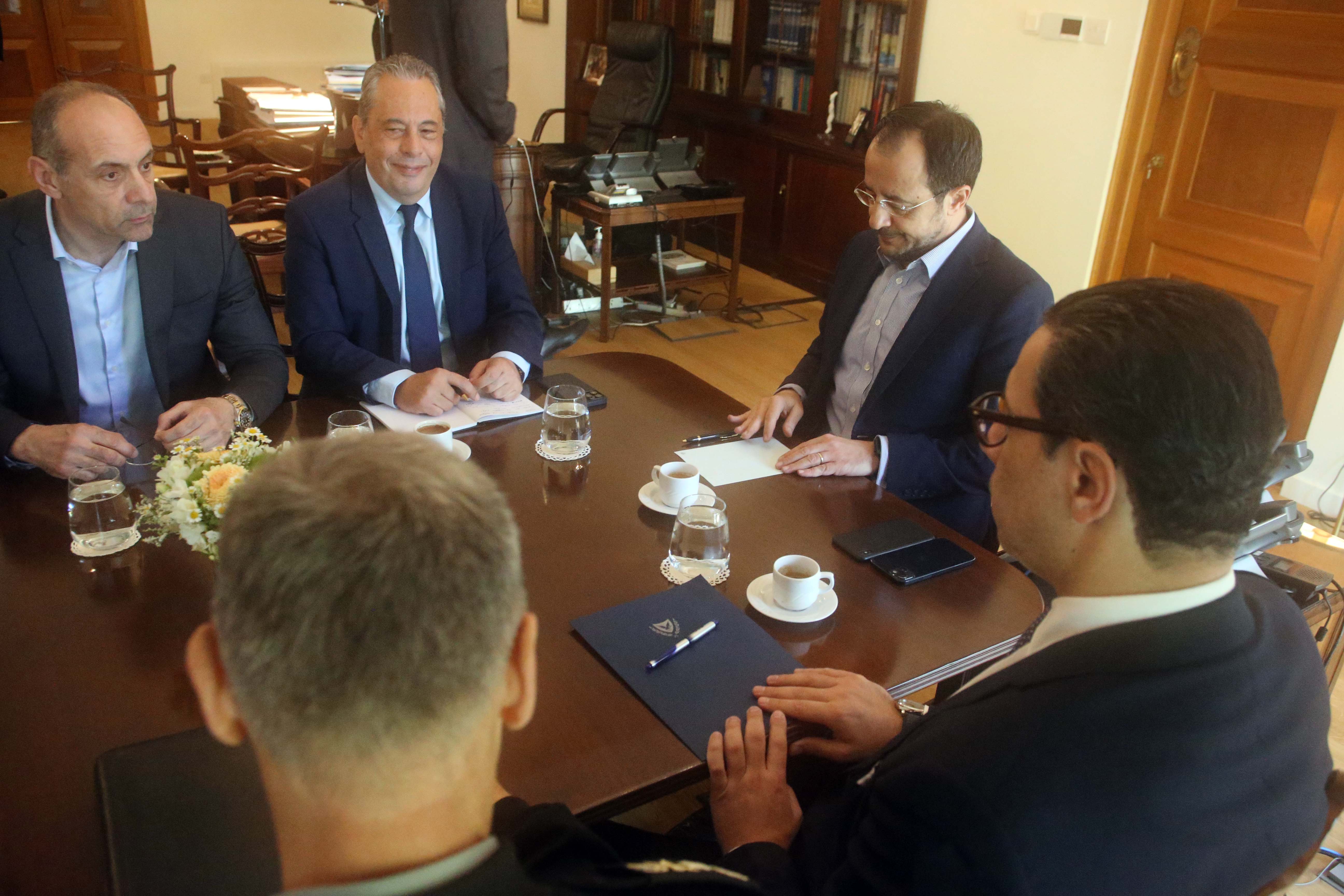The National Security Council convened on Friday to discuss developments in the Middle East as well as migration.
Though no decisions were made to change security measures, there was an “evaluation of existing data”, government spokesman Konstantinos Letymbiotis said.
President Nikos Christodoulides was briefed by the ministers of foreign affairs, defence and justice “over the data they have before them,” he specified.
The national guard chief, secret service director and national security advisor also attended.
Asked whether the government is concerned about the possibility of a new flare-up in the Middle East connected to Iran and the possibility of strikes on Israeli targets in Cyprus, Letymbiotis said the government has no such information.
Israel is bracing for a potential attack by Iran, which has vowed to retaliate for a strike on its consulate in Syria, which killed 12 people.
“What we want to say, which we have said from the very beginning, is that after October 7 there should not be an escalation of this crisis to the wider region,” Letymbiotis said.
Commenting on whether Cyprus may face threats due to the potential increase in tensions, the spokesman noted “the entire region is under threat.”
As such, an escalation affects the broader region.
“Due to the situation in the region, we have seen increased migration flows, which is where our efforts are directed towards managing these migration flows. We are constantly evaluating this information daily.”
A joint forced-return flight took place earlier this week, bring the total number of people who were deported since the beginning of the year to 3,337. The individuals had been found to be living in Cyprus illegally and were returned to their countries of origin.
During the same period last year, the total number amounted to 2,348 deportations.
The operation was carried out between Cyprus’ police and Greek authorities with the coordination of European border and coast guard agency Frontex.
This is the fourth time Cyprus’ police has participated in such an operation this year. Police and the immigration department have pledged their “efforts to maximise the number of returns.”
“The role of the National Security Council is to constantly assess the data and to have the required exchange of views as to how to assess that data,” Letymbiotis said when asked to comment on the government’s major concerns.
He specified the National Security Council would be in contact continuously.
On the matter of Christodoulides’ invitation to EU Commission President Ursula von der Leyen to visit Lebanon, Letymbiotis said there are no news which can be announced yet.
“It is something which is on the table. When there are developments, they will be formally announced.”
A spike in migrant arrivals this month prompted Christodoulides to visit Lebanon earlier this week where the two leaders agreed on a “mutual commitment” to address migration.
The government has called for more help and support from the EU in tackling migration flows, urging for more financial assistance.







Click here to change your cookie preferences